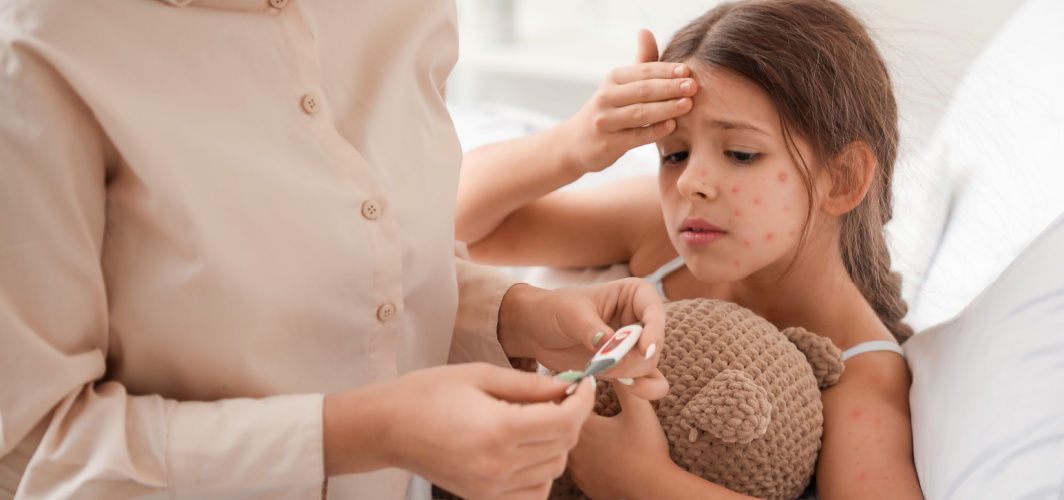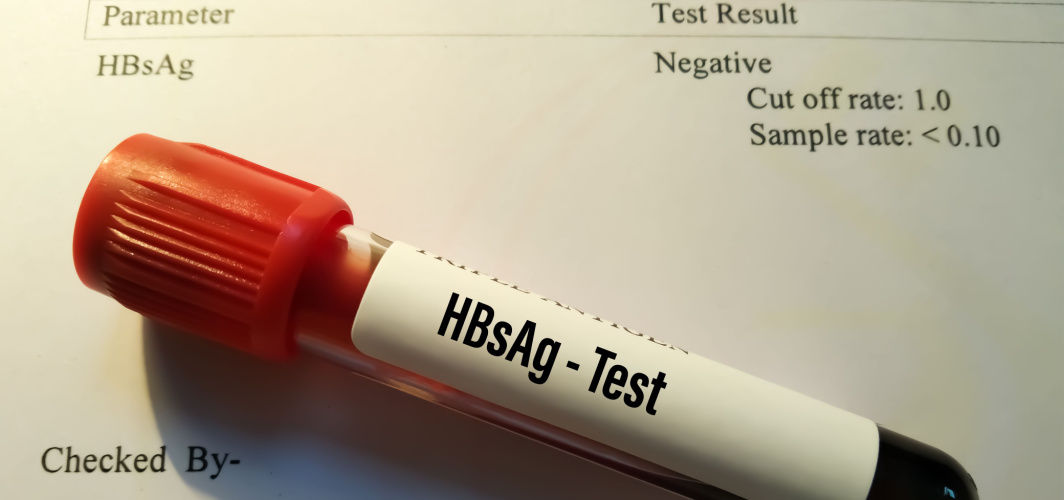General Health
Chickenpox: Know The Treatment, Vaccine, & Complications
4 min read
By Apollo 24|7, Published on - 15 March 2023, Updated on - 21 June 2023
Share this article
0
0 like

Chickenpox is one of the most common infections seen among children and teens. It is characterised by itchy, small blisters filled with fluid that appear all over the body. Caused by the varicella-zoster virus, it usually affects children but can also occur in adults. It is highly contagious and used to be quite common in children before the vaccine was introduced in the mid-1990s. Since then, the cases have declined significantly. Moreover, it is very rare for people to suffer from chickenpox infections more than once. Let us know more about this infection and how it can be prevented.
How Does Chickenpox Spread?
Chickenpox is extremely contagious and can be spread by:
- Breathing in air droplets produced by an infected individual’s sneeze or cough
- Coming in contact with someone infected with chickenpox
- Coming in contact with fluids from the eyes, nose, or mouth of an infected person
Infected people can spread the virus for up to 48 hours before the appearance of the rash. The infection stays contagious until all the blisters have crusted over.
Symptoms Of Chickenpox
It’s very easy to spot the signs of chickenpox. These include:
- Fever
- Fatigue
- Headache
- Loss of appetite
- Stomach aches lasting for a couple of days
Once rashes appear, they go through the following three phases:
- Red or pink bumps, which break out for multiple days
- Small blisters filled with fluid, which form, break, and leak, all in a day
- Scabs and crust, which cover the broken blisters before healing
New bumps continue to form for many days, so you can experience all three stages of the chickenpox rash simultaneously. After being exposed to the chickenpox virus, you may not experience any symptoms for 1-3 weeks.
Who Is At Risk Of Getting Chickenpox?
Typically, chickenpox is most common in children, particularly those under the age of two. In fact, 90% of all chickenpox cases occur in young children. However, older children and adults can get this infection too. You're at an increased risk of getting chickenpox if you:
- Haven’t been vaccinated
- Haven’t contracted the virus ever before
- Live with young children
- Work in a childcare facility or a school
How Is Chickenpox Diagnosed?
Signs of chickenpox are very easy to identify. Your healthcare provider will most likely be able to diagnose chickenpox with a physical exam of blisters. Also, lab tests can diagnose the infection.
How Is Chickenpox Treated?
Most people suffering from chickenpox are advised to treat their symptoms while they wait for the virus to pass on its own. Infected individuals should keep themselves isolated from others to prevent the transmission of infection. Doctors may prescribe topical ointments or antihistamine medications to provide relief from itching. You can also soothe itching skin by:
- Wearing soft, lightweight clothing
- Taking lukewarm baths
- Applying unscented lotion
Your doctor can prescribe antiviral drugs in case of complications. These drugs do not cure the infection but slow down the viral activity to reduce the severity of symptoms. This will help the immune system of your body to heal faster.
How To Prevent Chickenpox?
The chickenpox vaccine is highly effective in preventing this infection. It prevents infection in 98% of people who get the two recommended doses of vaccine. It's essential for a child to get vaccinated between the age of 12 and 15 months. Children should get a booster between 4 and 6 years of age. Other adults and children who haven't been vaccinated can receive catch-up doses. People who are unable to get vaccinated can try limiting contact with infected individuals. However, this approach is not very effective.
When To Consult A Doctor?
You should always consult with a doctor any time you experience an unexplained rash, particularly if it is accompanied by a fever or cold. Also, inform your doctor if:
- The rash spreads to your eyes (one or both).
- The rash is accompanied by disorientation, dizziness, shortness of breath, rapid heartbeat, worsening cough, tremors, vomiting, loss of muscle coordination, high fever, or stiff neck.
- Anyone in your house is younger than 6 months or has an immune system disorder.
Usually, chickenpox is easily treatable with a high likelihood of full recovery. However, if you are experiencing signs of chickenpox or need to get the varicella vaccine,
Consult Apollo's Expert Doctors
Medically reviewed by Dr Sonia Bhatt.
General Health
Leave Comment
Recommended for you

General Health
What is Spinal Tuberculosis [TB]?
Read this blog post to know what is spinal tuberculosis. Spinal TB occurs when a bacterium called mycobacterium tuberculosis starts growing within the bones of the spinal column.

General Health
This Test Can Help You Know If You Have Hepatitis B!
Hepatitis B is a viral infection that damages your liver and results in serious health issues. The Australia antigen test can help in figuring out if you have been infected with the hepatitis B virus.

General Health
What to Expect From an Online Doctor Consultation?
Discover the convenience and benefits of online doctor consultations. Learn about the entire process and the latest technologies involved that make virtual healthcare a viable option for everyone.
Subscribe
Sign up for our free Health Library Daily Newsletter
Get doctor-approved health tips, news, and more.
Visual Stories

Plant-based Foods That Are a Great Source of Iron
Tap to continue exploring
Recommended for you

General Health
What is Spinal Tuberculosis [TB]?
Read this blog post to know what is spinal tuberculosis. Spinal TB occurs when a bacterium called mycobacterium tuberculosis starts growing within the bones of the spinal column.

General Health
This Test Can Help You Know If You Have Hepatitis B!
Hepatitis B is a viral infection that damages your liver and results in serious health issues. The Australia antigen test can help in figuring out if you have been infected with the hepatitis B virus.

General Health
What to Expect From an Online Doctor Consultation?
Discover the convenience and benefits of online doctor consultations. Learn about the entire process and the latest technologies involved that make virtual healthcare a viable option for everyone.
